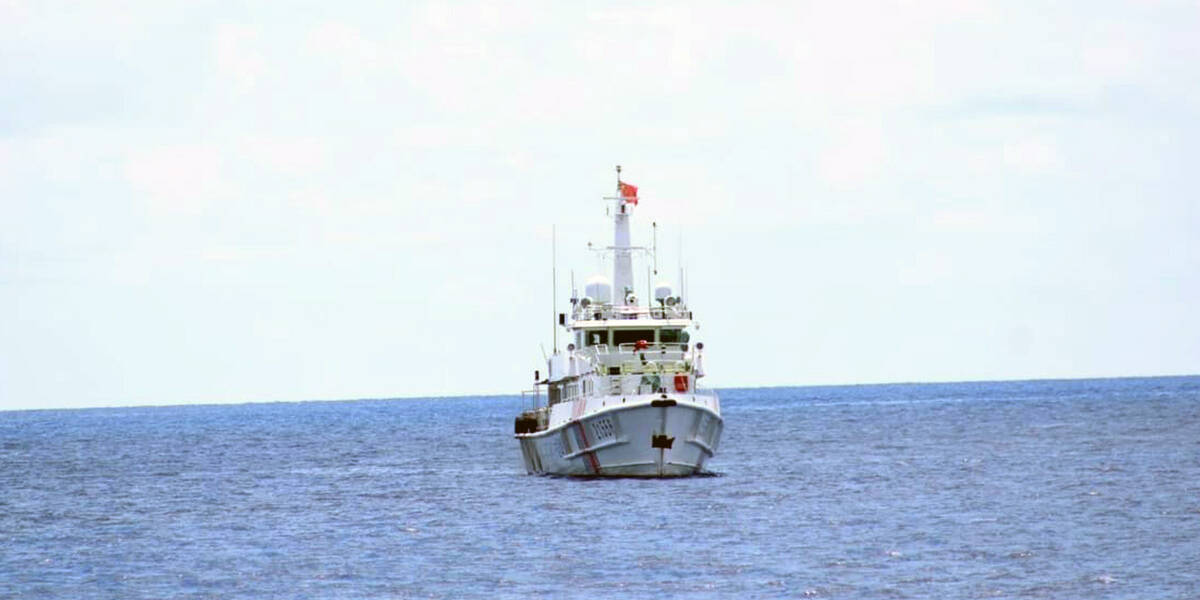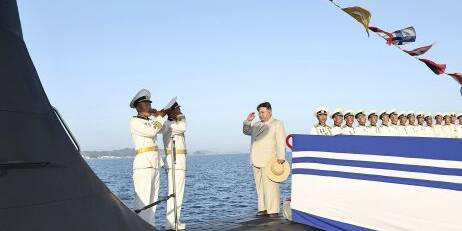Christian Oller Vicedo, Manila, for East Asia Forum
As recent tensions in Philippines–China relations expand from the maritime security to diplomatic domains, the contours of Philippine foreign relations under President Ferdinand Marcos Jr are becoming more apparent.
President Marcos has asserted an independent foreign policy that underscores Philippine national interests. This foreign policy dismisses a Cold War mentality that pressures small powers to choose between competing major powers. It values dialogue with all relevant parties for peace and stability. But given the rising threat of major power conflict between the United States and China, can the Philippines pursue such a foreign policy for maximum security and economic gains?
Marcos’s foreign policy seeks to enhance existing cooperation mechanisms with the United States, Japan and China for shared security and economic concerns. Due to China’s increasing assertiveness in the Taiwan Strait and grey-zone coercion in the West Philippine Sea, Marcos reinvigorated the Philippine alliance with the United States and sought a stronger strategic partnership with Japan.
Recent pivotal developments in security cooperation include allowing US access to four additional military bases within the Philippines as well as conducting the largest Balikatan Exercises as a strong commitment to external defence. This complements an agreement on defence equipment and technology transfer and a Humanitarian Assistance and Disaster Relief terms of reference signed with Japan.
On economic cooperation, this includes talks on enhancing cooperation for high-quality infrastructure and 5G connectivity with the United States. There are several agreements on agricultural, information communication technologies and infrastructure cooperation with Japan.
Marcos also sought to bolster comprehensive strategic cooperation with China. During his state visit to China, he secured investment pledges amounting to US$22.8 billion and infrastructure financing loans. Marcos and Chinese President Xi Jinping agreed to complement the Bilateral Consultation Mechanism on the South China Sea by convening Annual Defense Security Talks and establishing direct communication between their foreign affairs establishments. Marcos also agreed to ‘establish more lines of communication’ with China following ‘misinterpreted’ statements from the Chinese ambassador to the Philippines about ‘stoking the fire’ of the Taiwan Strait issue.
Notwithstanding these engagements, existing constraints will affect the ability of the Philippines to maximise security and economic gains from major powers. China has demonstrated assertiveness in the West Philippine Sea by fully militarising its occupied islands and performing increasingly provocative grey-zone coercion activities. It has also ramped-up military flights and conducted missile drills near the Taiwan Strait as a ’serious warning’ to external forces endeavouring to contain China.
These sovereignty issues will remain challenges for constructive dialogue between Manila and Beijing. As tensions escalate, China may use the promise of economic and development cooperation to influence Philippine defence and security relations with the United States.
Internal factors can also constrain Philippine efforts to enhance relations with the United States and Japan on the one hand, and China on the other. Trilateral deterrence through joint military exercises in the Enhanced Defense Cooperation Agreement sites may be constrained by legislative checks against the rotational presence of US forces in the Philippines and the opposition of local officials. The complex politics in securing national support for closer security relations with the United States and Japan will influence the prospects of a trilateral defence agreement.
China’s low trust rating among Filipinos is a challenge to the sustainability of Philippines–China cooperation. In 2018, a survey revealed ‘two in five Filipinos disagree that the Chinese government has good intentions for the Filipino people’. Though the Philippines’ foreign policy is a presidential prerogative that affords some insulation from public opinion, continuing distrust of China may hold sway as Marcos nears the end of his term. Reputational risks associated with highly assertive statements from China adds another layer of complexity in improving public support for stronger Philippines–China relations.
Various scholars and analysts have labelled Marcos’s foreign policy as dynamic equilateral balancing, flexible or balanced. Similar to the foreign policy shifts during the Benigno Aquino and Rodrigo Duterte administrations, pivotal political developments in Philippine domestic politics and the geopolitics of the Indo-Pacific would inspire shifts and recalibrations in the current policy.
Observers must focus on the realities of such a foreign policy. It is operating with limited material resources. Concerns include the relative size of the Philippine defence budget, the number of naval assets and the availability of resources to facilitate defence technology transfers.
The finite nature of non-material resources must likewise be acknowledged. The presidential term limit, decreasing presidential approval ratings and the limited soft power of the Philippines will influence the latitude of possible foreign policy recalibration.
Given these constraints, the Marcos administration should identify a hierarchy of national interests and define the intended outcome of pursuing an independent foreign policy. A Philippine national security strategy would become highly relevant. It would be a whole-of-government strategy map and communications tool that sets expectations in foreign relations with the United States, Japan and China.
A fair assessment of Philippine foreign policy under Marcos must consider the relative capabilities of Indo–Pacific powers and not pose a dichotomous question of success or failure. The policy must instead be assessed using a spectrum of effectiveness based on the number of national security interests it was able to assert, and those interests it had to concede. Only then can Marcos’s foreign policy be examined as an independent foreign policy guided by Philippine national interest.
The original article can be found here at East Asia Forum.
Christian Oller Vicedo is a security analyst based in Manila.
Feature Image: U.S. and Philippine soldiers conduct breaching operations during Balikatan 23 FORT MAGSAYSAY, Philippines (April 22, 2023)/ via U.S. Indo-Pacific Command Flickr
Related Analyses
September 15, 2024
West Philippine Sea: Several factors force BRP Teresa Magbanua to return – PCG
0 Comments1 Minute


